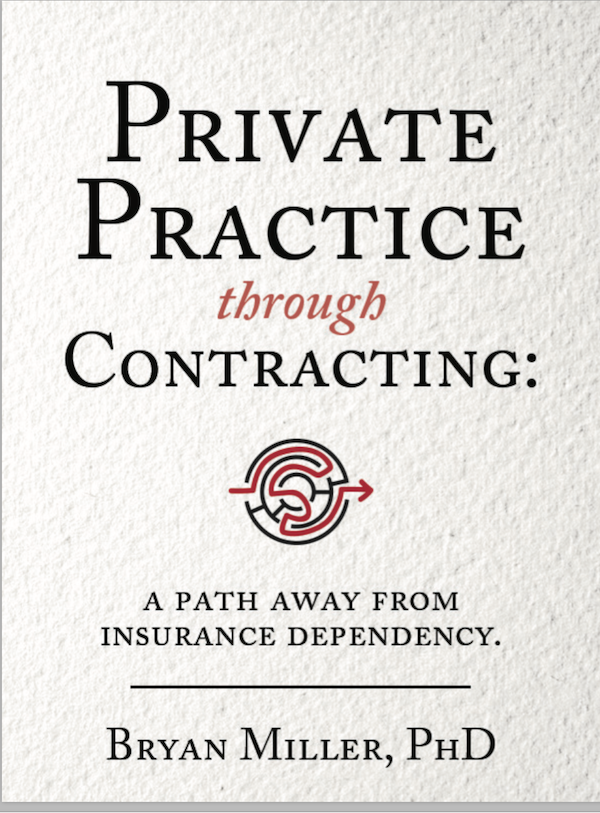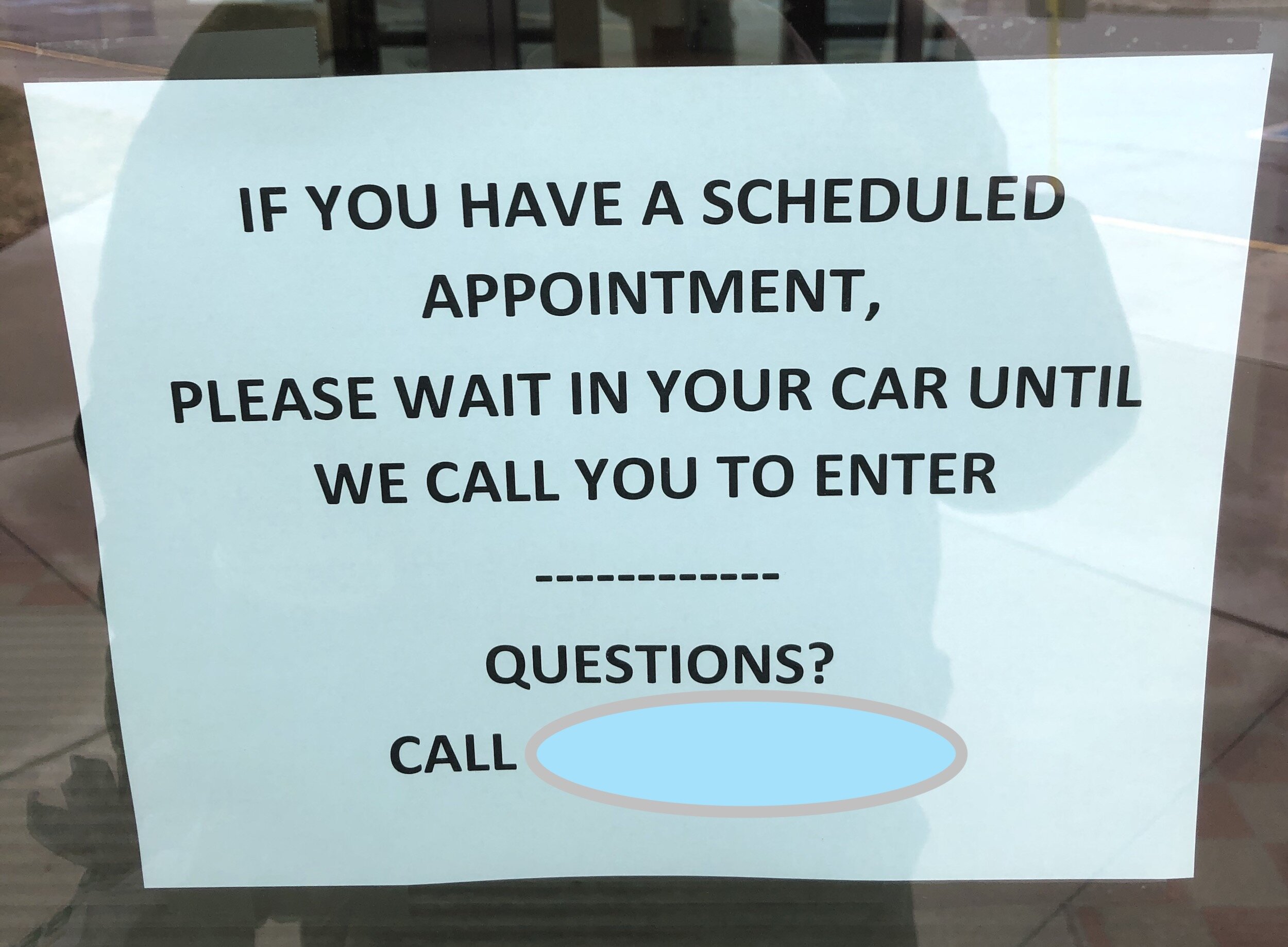Fee-For-Service or Private Pay
Many mental health professionals would like to transition their private practices solely to fee-for-service, also called private pay, clients. Why? Less paperwork, higher fees, lower overhead costs, personal preference . . . there are probably many reasons. "It's easy. Here's how to do it." to stories of "Tried to do it. It was hard or impossible." My sense is that it may vary depending upon the population and financial demographics of where you work, your years of experience, your reputation, and your entrepreneurial marketing ability . . . and other factors.
The typical "help" on-line takes those who through articles and blog posts that advise the reader on how to transition from third-party payment to private-pay practices. This certainly is helpful and may in fact be the path many will pursue. One element that, for me, is almost always missing however is . . . private contracts. They never seem to be mentioned. Why? I know of therapists who have contracts with pediatricians, chiropractors, non-profits, schools, churches, federal programs . . . and more! Contracts provide stable, non-insurance dependent, revenue. Most of these are for "therapy services" but at times they are for leadership training, coaching, or consulting.
Here's why this bugs me . . . For over twelve years, 40% of my business income has come from two customers. Two. I have also spend more than a decade training students how to get these contracts. I mention this now because I can--both of these contracts have been replaced with other consulting work and there is no threat to revealing the amount of business it provided. (Incidentally, I terminated both contracts when it became clear that leaving them behind was best for my business. One contract lasted 12 years and the other 15 years.
Private Contracts versus Private Pay
For those of you who have the entrepreneurial spirit, contracts can become "the business" independent of a private mental health practice entirely. (I had a friend in college whose sole business was repairing seats for Pizza Hut . . . he travelled all over the country and made a good living! How's that for specialization?) For the less-entreprenureal, it can be a great supplemental to their clinical practice. I have primarily done the latter, choosing to operate a limited private practice--where I saw a mix of insurance and private pay clients--and having fee-for-service contracts in addition. It's worked well for over 18 years.
Although the private practice has been the "main gig" in the last decade, it was the contracts that provided the most stable source of income, the lowest paperwork to dollar ratio, and that provided a cushion when changes in the insurance world (the implementation of the Affordable Care Act) which dried up all payments for several months.
While a full discussion of the advantages and risks is beyond the scope of this blog post, here are some comparisons that have made contracting very attractive to me personally. My hope is that this comparison, as crude as it is, will get you to consider your options and make your own choices about what you want your career to be.
Comparing the Two Models
For comparison purposes, the Fee-for-service model will assume an average of 20 sessions per client with the professional seeing 25 clients on average per week and working 48 weeks in private practice. Contracts can vary widely depending if they are "one time meetings or workshops" or "on-going services" or somewhere in between thus the number indicated is a minimum and the upper end of the range is undetermined.
Item Fee-for-service Contract
Clients (annually) 60 (25 a week for 48 weeks) 1*
Statements 0-720 12*
Referrals (annually) up to 60 0*
Fees "health care" schedule "health care" or "consultant"
Environs Clinical office Clinical office or "off site"
Marketing Sustain 60 clients Sustain 0 clients*
* Or more depending upon the type of contract and work to be completed.
Now, for the Skeptics . . .
Okay, some of you, skeptics like myself, will say, "Yes, but there is a downside to trying to get fee-for-service contracts and some inherent risks!" True. Again, just a reminder, a full discussion is beyond our purpose here and we will not attempt to cover all the points needed to make this decision, but here are a few of the challenges/risks just to get you thinking . . .
If you have only two clients then losing one is a big part of your revenue. Where losing one client out of 60 is less traumatic. I've never had this happen but it is true that this kind of “event” has the potential of being very threatening.
I may have to master new processes (depending upon the nature of the contract) to work in a new business environment. You will. For me, after more than 26 years as a counselor, this is exciting and part of why I do consulting.
I will have to establish my own fee structure and negotiate with customers. Yes, since you may not be able to just "call other practices" and charge what they are charging there is a need to establish your fee structure.
Establishing a fee-for-service private practice may be the traditional way to move away from third-party payment systems but it is not the only way and, I would argue, it may not even be the best way!
So what is it that you would really like to do? What connections do you have that might lend themselves to developing a contract for your expertise? What needs can you meet and can you get someone to agree to pay you to help them meet that need? It is possible!
My dream contract is to get paid to use my Taylor 614ce guitar and use it to teach life-lessons to younger people. It would be fun. But, sadly, no one is offering. It may be a lack of talent thing. Until then, I will keep practicing and hope I miraculously get blessed with some higher-level talent, or at least skill, before it's too late! On second thought, maybe a more realistic goal for me would be to focus on impressing the grandchildren--but one can always hope!!


































